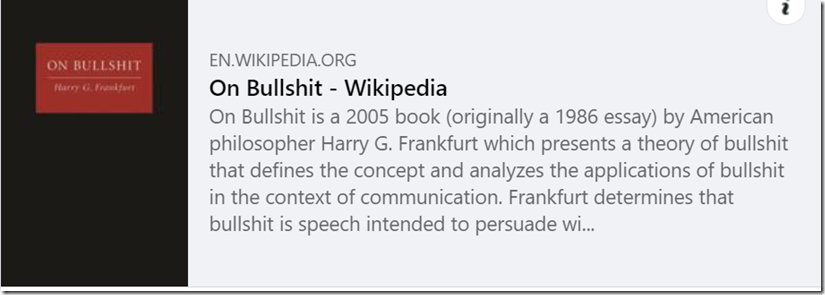Social Engineering in Fernsehserien
Ich kann gut verstehen, daß viele Christen ein Problem haben mit den heutigen Fernsehangeboten. Ich hab mich hier ja schon öfters auf die deutschen Fernsehserien bezogen, die ich an sich recht interessant finde.
Mir ist schon öfter aufgefallen, daß diese Serien “social engineering” betreiben, und zwar im Sinne einer progressiven Sexualmoral (oder -unmoral): Homosexualität ist o.k., Sex mit wechselnden Partnern, auch mit verheirateten, und ähnliches. Menschen, die sich gegenteilig äußern, werden von den Hauptakteuren mit erhobenem Zeigefingen zurechtgewiesen.
Ich kann verstehen und finde es auch gut, daß man Gewaltanwendung, Beschimpfungen, oder generell entwürdigende, herabwürdigende Wortwahl kritisiert, da müssen auch wir als Christen und andere konservative Leute uns zusammenreißen; aber gegen Menschen zu wettern, die gleichgeschlechtliche Liebe nicht als normal empfinden, oder wenig für Promiskuität übrig haben, ist genauso intolerant, wie das Beschimpfen von Schwulen.
Meine Überzeugungen sind gefestigt genug, daß sich meine Meinung zu diesen Dingen durch diese mehr oder weniger subtilen Botschaften nicht ändern wird, aber ich kann verstehen, daß z.B. Eltern von Jugendlichen oder Verantwortliche für andere beeinflußbaren Menschen sich da Sorgen machen.
Lies vs Bullshit
In 2016, during the pesidential contest between Hilary Clinton and Donald Trump, in which both candidates were caught making untrue statements, I characterized the difference between them as follows:
When Clinton tells untruths she knows what the truth is and is consciously saying something else — just like most of us when we lie.
Trump, on the other hand, “shoots from the hip” in any given situation, saying what he thinks will sound best in any given situation. Sometimes he contradicts himself multiple times in the space of just a few hours and seems to be wholly unaware of it.
Well, I just found out that a well-known philosopher, Harry Frankfurt, has written an entire book on the subject, and am feeling quite proud that my thoughts run along similar lines as a famous academic ![]()
On the subject of ChatGPT
“Language models are trained to predict the next word,” said Yilun Du, a researcher at MIT who was previously a research fellow at OpenAI, and one of the paper’s authors. “They are not trained to tell people they don’t know what they’re doing.” The result is bots that act like precocious people-pleasers, making up answers instead of admitting they simply don’t know.
That’s why I pity the students who rely on ChatGPT to write their homework assignments …
Emmanuël Nicolaïdes and the Trio Emmanuël
In the late 1970s, while a student at the (now unfortunately defunct) European Bible Institute (EBI) in Lamorlaye, north of Paris, I came across an album by Trio Emmanuël, with lead singer Emmanuël Nicolaïdes, an alumnus of EBI. I never owned the album (it was part of the record collection at EBI’s small radio studio) and the compact cassette copy I had made for myself unfortunately got lost during one of our many moves, but the songs are so impressed on my mind that today, more than forty years later, I still remember most of the words. Some time ago, to my delight, I came across the songs from that album on YouTube.
Later Emmanuël lived in Canada, and while I never actually met him I briefly corresponded with him a few years ago. Two months ago I found out that he went home to glory about two years ago, after a long illness and Covid-related complications.
So, in memory of Emmanuël Nicolaïdes and Trio Emnanuël, here are the videos I found on YouTube.
Note: Unfortunately I don’t have the words, and my French is not good enough to do a satisfactory transciption, so if anyone out there can help with that, I would appreciate it.
Mentalitätsunterschiede?
“24h Polizei im Einsatz”, eine aktuelle Serie auf puls24 TV die Grazer Polizisten auf ihren Einsätzen begleitet, ist genauso interessant, wie die deutschen Serien “Auf Streife” und “Ruhrpottwache” — aber auf ganz andere Weise. Teilweise liegt das sicher am Ansatz (die Deutschen stellen Einsätze mit teilweise tatsächlichen Polizisten und anderen Ersthelfern nach, die Grazer begleiten tatsächliche Einsätze), aber ich glaube, es liegt auch den Mentaltätsunterschieden zwischen Deutschland und Österreich. Mit einer bayrischen Sendung wären die Unterschiede wahrscheinlich etwas geringer.
Und auch innerhalb Österreichs scheint es Unterschiede zu geben: die Wiener Polizisten, mit denen ich im Laufe der Jahre zu tun hatte, kamen mir allesamt nicht so sympathisch vor wie ihre Grazer Kollegen (aber das mag auch an einer anderen Wahrnehmung liegen, wenn man selbst Ziel der Amtshandlung ist ![]() ).
).
USA: Problems with super long trains
When we were living in Plano, TX in 1984-1989 trains would regularly cut the town in half; as soon as the sound of a train whistle was heard, cars started racing along Avenue K to get to a crossing before the train blocked all crossings for half an hour. And this was not rural Texas, but part of the Dallas Metroplex. This situation seems to have been fixed since then by elevating the train tracks so road traffic can pass below them, but the same and worse problems continue to exist across the U.S., with paramedics and fire engines unable to reach the site of an emergency or to reach the hospital with critically ill patients.
In situations like those described in this article it is incomprehensible to me why the world’s most advanced and powerful nation (by their own assessment) is being held hostage by freight train operators and is unable to mandate the conversion of grade crossings into road underpasses.
As with the gun control issue legislators in sway to powerful lobbies passively look on while citizens’ lives are being devastated and destroyed. Incomprehensible and enough to disillusion any Americanophile — this one, at least.
Judging But Not Being Judged?
In the lectionary of the Lutheran churches in Austria and Germant the sermon text for today, Pentecost Sunday, is 1 Cor 2:12-16, where it says, among other things,
“But he that is spiritual judges everything but is himself judged by no one.”
Retired Pastor Detlef Korsen made this comment in his Pentecost sermon today:
You can brush this passage against the grain and the result is that spiritual people can judge anything and are not judged themselves. And immediately people who like to sit in judgment are drawn to this passage and say,
“Yes, I would like that too: that nobody can judge me, nobody can say anything about me; but I can say something about everything, and what I say about everything remains unchallenged, because I’m right!”
That is not how the Holy Spirit works. This is how the spirit of the world, disguised as the Spirit of God, works. So stay away from this attitude.
Russell Moore on Tim Keller, and other stuff.
Russell Moore is editor of Christianity Today. This is his weekly newsletter. Link to sign up to it is at the bottom.
Perl Test
Intro Text



